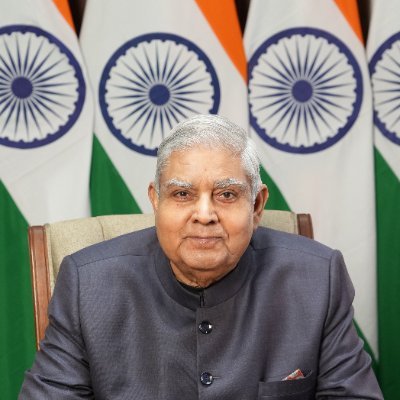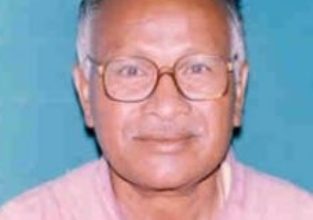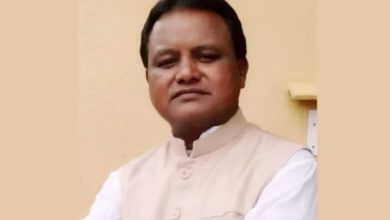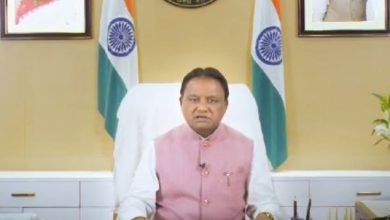Vice-President’s address at the Foundation Day Celebration of the National Human Rights Commission

Vice-President’s address at the Foundation Day Celebration of the National Human Rights Commission
Very warm good morning to all of you.
Distinguished audience, excellencies and friends in the cause of human rights. I had a tenure which I will not be able to forget, because it is reminded on every platform, my tenure as Governor State of West Bengal. That makes me resonate about state of human rights but ladies and gentlemen, post-poll violence in West Bengal does not define the scene in the country it is in isolation but whenever someone calls me former-Governor of the State of West Bengal, I am reminded of the great contribution by the National Human Rights Commission and law of the ruler rather than the rule of law defined the situation. It emanated from a report rendered by the former member of the National Human Rights Commission Shri Rajiv Jain, a thorough report that addressed all issues and also indicated the way ahead.
Friends, I am happy to be here today to mark the 31st Foundation Day of the National Human Rights Commission of India. Today, we are not only commemorating an institution but the fundamental value that is integral to this institution, integral to the Constitution of India, and integral to our society and culture.
This year the World Human Rights Day theme is Equality – Reducing inequalities and advancing human rights. Equality has to be understood as it is beyond definition as such. However at its core is that all human beings are born free and equal in dignity and in rights. Religion, race, colour, sex, status, or other facets are surficial. Discrimination in any form is challenging to core aspects of human rights. Human rights are best secured and nurtured with public response. There can be no greater custodian of human rights than the public at large. We need to stand firm when such violations occur.
To respect others’ human rights is divine duty. These rights are inviolable. Preamble of our Constitution seeking justice, liberty, equality to all citizens is essence of human rights. There is need to have fraternal feelings with respect for different perceptions and views.
Human rights can be defined in two ways. First is the narrow, legal way of defining human rights at the drop of a hat, we jump to it make a very small isolated instance systemic that’s a legal way. The notion grants certain rights to individuals by their inherent being. No law is needed. We are born with human rights. We are born with basic rights, we are inalienable to humanity, inalienable to the individual and therefore, according to me, in all humility, we must see human rights from this prism that that is our way, that is the Indian way, that is the way we have lived for over 5,000 years. No country in the world can lay such a claim.
When we go into the evolution of these rights, they primarily started with political rights, including the right to life and liberty. There was a gradual accretion of other rights. Judiciary in this country has added many dimensions to these rights but there is another way, and that is the civilisational way of thinking about human rights. That is organicist way. It looks at human beings as part of an organic whole, including society and Prakriti or nature. And the system as a whole has to live in peace. It is encapsulated ‘Sarvam Shanti’. We have dictated our lives over centuries in spite of various difficulties by this dictum. For us as a nation nurturing of human rights is a way of life.
The civilizational way of thinking of rights did not evolve from political rights to economic rights and then adding other rights such as the freedom of conscious. The basic, the pristine, the organic, the original can be looked into our Vedas and our functioning over the ages, this defined sukha for all, well-being of all, happiness for all. This defines that we come to the planet as trustees, not as exploiters. We live not for us, but for all, we know for sure that we can be happy only with everyone being happy in as much as we have in togetherness to save this planet, because this existential challenge is not to an individual.
It is beyond any element of race, caste, creed, colour, or geographic boundaries. Similar is the situation with respect to human rights. Sarve sukhina bhavantu, the Chairman focused it. This is the motto of NHRC. What a grandiose motto! A motto emanating from our civilisational ethos, emanating from what we have lived through. We have, all through history exemplified it, and in the face of very daunting circumstances, some of which were ruthless, reckless, trampling our civilisation yet the nation stood firm. That’s what India is, that’s what Bharat is.
Our scriptures were and are our charters, they are repositories of knowledge and wisdom, they are repositories of the human way of life. One will have to strive for years to come to add to them. That is the ultimate when it comes to knowledge and these scriptures were loud, every day proclamation of these rights that society and the civilization granted.
Our civilization created institutions to ensure that these rights were honoured. In any governance in this country, at any point in time, those who governed had to listen to the voice of the people. Our sages, our seers, they were the real controllers of morality, property, and all that constitutes the welfare of humanity at large.
Our temples ran open kitchens so that there was freedom from hunger. Temples ran open kitchens so there was freedom from hunger. Education was free, so there was right to education. Friends, if you look at the Indian Constitution it has 22 paintings. The first one is the Gurukul, It defines our society is concerned that everyone would have access to education. You gave dakshina according to your ability, but there was no tuition fee. Guru dakshina if you got education, you can reward your teacher, you can honour your teacher but it did not have a compulsory element; it had an optional element. It had to emanate not from your fiduciary strength, but from the call of your soul that was the sublimity. We practised and are on our way to it. Everyone was allowed to practise their faith. Look at our country who came? They came, they were received, they were absorbed, they were in oneness, and they felt at home in this country in the same manner as they felt at home in other countries.
A country where they had to live under circumstances which are indescribable that was the scenario, friends. So on and so forth, I can keep on going, but the list is endless. In a way, human rights are very much part of our moral fabric, our way of life, and why only just the past? Our contemporaneous governance look at it.cIt underlines this very philosophy in several ways.
Policies are driven by the idea of human rights. When COVID hit us and hit the world, it was a non-discriminatory challenge to the entire planet. High and mighty and great nations suffered. In that scenario, the government ensured in this country that no one sleeps hungry, regardless of access to their means of livelihood. Free grains were given, friends, to 850 million people, empowering them to face the challenge. What started on 1st April 2020 continues till date and I wonder still in the world people talk of hunger crisis in this country? 850 million people are getting support of free ration in this country, and that is irrespective of their colour, caste, creed, religion, geographical location, or other aspects. All I can say is, those who think about India’s hunger situation need to reflect and get into a repentance mode. This moral fibre is driving governance in this country. I don’t want to reflect all on this so much attention has been bestowed on human rights in this country that what was unthinkable is now a ground reality.
If a widow has to stand in queue for two hours and suffer to get a pension for the service her late husband rendered, this was a loss of dignity. Not any longer, she gets it sitting at home, and this makes Bharat accounting for more than 50% of global direct digital transfers. Which indicates promptness, no leakage, no liasioning. The world needs to know it. I am not seeking recognition, just to be informed. Direct benefit transfers hit at the corrupt and you will be happy to note, friends, that corruption has been neutralised from power corridors in this country. Corruption is no longer a password to a contract to employment.
Corruption leads you to be attendant to law, gone are the days when some thought they were above the law. The equality before the law in this country has been demonstrated to such a wholesome level that human rights are flourishing and blossoming is taking place, such a large country, with such diversity, the world needs to know about it.
Another serious issue is that they know it, they seek to undermine it. I’ll come to that later.
Not long ago, in our country and in the world it still happens in major parts of the world states. Ignominy of women defecating in public, a huge challenge for a country like ours 1.4 billion people, to take care of this significant human rights aspect, which occurs minimum twice a day, and look at now our scene is dotted by the areas that are 100% free of this menace. The work is ongoing and the world has to see it to believe.
What a transformative change it was. Wealth out of policies has ensured toilets in every home a fundamental right not required to be scripted by any constitutional prescription or law. A ground reality at the moment, imparting to our women, and others also, dignity, which is the most precious facet of human rights. Friends, these are just illustrative.
Technological penetration has created an equalising situation and helps curb iniquitous practices, making everyone equal before the law. No country in the world can claim the kind of equality before law ecosystem we have. Those who thought they were above the law, beyond the reach of the law, enjoyed immunity from the law are suffering at the hands of the law and everyone in this country is accountable only and only in accordance with the law. A big change the world has to notice, we are perhaps a country in a single-digit situation on this score.
The strong arm of the law in our country curtails the environment of impunity. Friends, do you think a country that had such a holistic idea of rights takes care of everyone? Do we require sermonising? Do we require lecturing about human rights? We are open to all ideas, we are resilient but we don’t need lecturing or sermonising on the human rights aspect, certainly not. I must, friends, compulsively advert to an unfortunate aspect as well. Unfortunately, this great civilisation suffered a taint on its otherwise unblemished record. I must record it, you see. Not that we have not had air pockets or strong headwinds that traumatised people on the plank of human rights.
Bharat, long championed as a guardian of human rights, faced three stark transgressions that scarred generations: the brutal Partition, the oppressive Emergency, and the horrific 1984 riots. These traumatic events stand as sombre reminders of the fragility of civil liberties and the imperative to vigilantly safeguard human dignity. But then we are a nation quick to fix situations, to learn our lessons.
As a tribute to our deep commitment to human rights, laudable steps have been taken by way of celebrating Constitution Day from 2015 onwards on November 26. This will remind us all to fervently work towards realisation of noble values emanating from our preamble. Thereby nurturing human rights and creating an atmosphere for their blossoming.
Another significant step was taken this year- June 25 to be observed as year as ‘Samvidhaan Hatya Diwas’ to mark imposition of draconian Emergency. This intended to honour the spirit of millions who struggled to revive democracy despite facing inexplicable persecution at the hands of an oppressive government then. This will help keep the eternal flame of individual freedom and the defence of the democracy alive in every Indian.
The nation and its youth in particular must be informed that on June 25, 1975, the then PM Indira Gandhi, in a brazen display of a dictatorial mindset, strangled the soul of our democracy by imposing the emergency on the nation resulting in violation of human rights. Lakhs of people were thrown behind bars for no fault of their own and the voice of the media was silenced and the judiciary at the apex level failed as never before therefore, this step has been taken. These are not being looked at in this country from a partisan angle. In this country, we look at events and situations only from one angle, and that is the angle of nationalism, the angle of the Constitution.
Friends, Constitution is our north star for human rights. Celebration every year of Constitution Day on November 26 is reminder of our duty to nurture human rights. Every person in this country, particularly the youth, will be reminded of this solemn obligation, solemn duty to be performed for democracy and for the nation. Constitution Hatya Diwas, similarly, on June 25th every year will act as a reminder of the dangers and challenges to human rights while the record of Bharat as a nation and as custodian of human rights is singularly remarkable, and I am saying this with utmost restraint, I am using minimum words. In this scenario, there are pernicious forces within and without that in a structured manner, seek to unfairly tempt us. These forces are overzealously in overdrive. They have an agenda that is far distanced from human values or concern for human rights. Friends, such is the sinister design that, on all conceivable occasions, these forces that are inimical to Bharat avail national and international fora to tarnish our fair human rights record, arrogating for themselves the right to calibrate. I pose a question to myself. Who has imparted this right to them? And it is most opaque, hardly any due diligence. Ground reality is very different, as I indicated about the hunger situation. Some of these think and that is a colonial mindset. They think they are ordained to enjoy such a right, a right to harangue civilisations like ours, to doctor situations, to impede our growth. These forces have to be neutralised by actions that exemplify, if I may say so, in the Indian context, ‘Pratighaat’.
They also think they are entitled to create indices and rank everyone in the world. This exercise smacks of imperial hubris. To show a nation in bad colour, they have a list of nations. I dare them to come to this country if there is a heavenly spirit, heavenly ecosystem, it exists more here than in any part of the globe. We are a nation of saints and sages, culture and civilisation, empathy and sympathy.
During COVID, facing a challenge, we supported hundred other countries. Wherever there has been a crisis in the globe by way of evacuation requirement or earthquake, this country has always gone ahead.
Expansion is the worst form of human rights transgression, this country has never believed in expansion has been a victim of expansion. The Prime Minister of this country has unequivocally stated on a global platform “We are not living in an era of expansion, we have to address issues and conflagrations by discussion and diplomacy.” This is Bharat. These sinister forces are driven by an agenda that is fiscally fuelled by people who seek to make a name for themselves, time to shame them. They try to create havoc with the economic system of this country and made no bones about it, no secret of it. First one partly successful, second one collapsed, the balloon was punctured.
Human rights, friends, as a concept should ignite us to look inwards. There are occasions in your life, day in and day out when you can serve human rights by hand-holding people the aged, the challenged, the needy and also you can do it by counselling, people need counselling. Every country in the world should measure human rights on a yardstick of the well-being of their country’s body politic overall economy.
In the last decade, India’s economic growth, which is exponential, incremental, and now unstoppable, is not pyramidical; it is plateau. Everyone is getting the benefit, who is in the last row affordable housing, gas connections, tap water, internet connectivity, road connectivity and this is non-discriminatory progress.
Never in this country a developmental project been dictated by circumstances that are not sublime, serving the ultimate cause of human rights. A country where, even for a single person to exercise their right to vote, arrangements have been made. Steps have been taken by the government to ensure that those in hilly areas or difficulty, challenged areas get electricity in their house such is the track record and concern for human rights. Friends, look around the world, look around the globe. You’ll find Bharat way ahead of other nations when it comes to the preservation of human rights, particularly for minorities, the marginalised, and vulnerable sections of society.
Tell me, which country in the world treats its minorities the way Bharat does? We have seen condition of minorities in several nations. Geographically, several nations’ names have been totally eradicated when it comes to their demographic composition. Surprisingly, the small segment left behind had to seek refuge in this country. Human rights cannot and should not be used as a tool of foreign policy to exert power and influence over others.
Naming and shaming the wrong is a degraded form of diplomacy. You have to preach only what you practise. Friends, if one incident happens, it is disproportionately blown out, fast-tracked, and the narrative gets wings. Voices rise all over, fuelled by fiscal power. That is the time when our youth and media must be vigilant. We have to be vigilant of every aspect of human rights. We have to remember we are a nation of 1.4 billion people, an isolated incident cannot define us but their incidents just go unnoticed. Nielsen has never been remembered more when I think of those nations that turned Nielsen’s eye to such horrendous transgressions of human rights, I do not wish to dwell more on it, but catalogue the events in Europe alone. You’ll find it. Look at our school system, we don’t have the kind of shootings that some countries, which claim to be very developed, experience on a regular basis.
Friends, with those who are closely aligned, the approach turns from clinical analysis to blissful ignorance, which allows us to draw conclusions about the political nature of the approach to human rights and let me remind you of one recent incident, an incident that defines what human rights ought not to be. That is virtually a crucible of decimating human rights. The world has seen it, some have suffered in this country.
The most disheartening aspect of the plight of Hindus in our neighbourhood is the deepening silence of so-called moral preachers, custodians of human rights. They are totally exposed. They are mercenaries of something which is totally antithetical to human rights. Look at the kind of barbarity, torture, traumatised experiences of boys, girls, and women. Look at our religious places being sacrilege. We are too tolerant and have been too tolerant of such transgressions. This is not appropriate. I call upon everyone in the country to seriously reflect, think if you were one of those.
Evidence, episode after episode, is piling up that the deep state is engaging in lawfare against rising powers. Somehow, it seems they are unable to digest the rise of civilisational states in the international system who assert their own identity.
Let me reflect little away from the issue. Does the United Nations Security Council reflect a sense of human rights when it keeps one-sixth of humanity away from it? There has to be auditing of its performance. Friends, the discourse of human rights is calibrated for political projects. Get a project, get money, get some people employed. You are applauded only when you talk negative of this country. I know of an institution in the world that claims to be at the peak. They call them Ivy League institutions. A book has been written, Snakes in Ganga over it.
A celebrated figure, world-renowned, Dalai Lama ji, was invited. The invitation was cancelled. The one who took the call to invite was shown the door and we got preachings from there that in our premier institutions, admissions are accorded by a privileged pedigree system, not by merit. I went to a school on foot, travelling six-kilometres got educated by scholarship, come from a farmer’s family, I am before you.
Droupadi Murmu, a tribal woman who faced all kinds of challenges, is the First Lady and first tribal President of this country and Prime Minister Narendra Modi, for historic third term after six-decades, and the first term with a full majority after three-decades, one who has changed the landscape of this country is an OBC from backward community. The only memory he has of his youth is serving tea while the train came that too in a hurry to make money.
I am defining these three top posts in this country of 1.4 billion if this change is not pro-human rights, if this change is not transformative, well, I fail to understand how to define it. People-centric governance is our mantra, our philosophy. Last-mile delivery, welfare of the weakest. You see our civil services, you will be amazed, particularly the people outside the country who get into there, the marginalised.
I was so happy to find that the father was a painter in a police station, and the girl came there as superintendent of police and these instances are not isolated, there are many. My mother was not educated formally, my father did not go beyond class five, I am before you. This defines the great change in human rights this country has.
Friends, when you ignore these developments and artificial issues are inputted to portray Bharat in a bad light, I can only lament the intellect of those heaviness who are distanced from a rational approach. It is painful to find such realities when you scratch the surface of those who claim to champion and advocate human rights. We have a system, and institutions are being used, including the judiciary. We have to be on guard. Those trying to challenge are inspired by ill motivations to destabilise this country. They find our growth indigestible, they are not acting as per their soul or mind, they are being financially manipulated. Much of it has been contained. It shall not be allowed to happen in this country. We are a nation to us belongs this century. And we’ll be a developed nation by 2047, making our people, in every respect, enjoy human rights.
Domestically, we should be wary of elements that use human rights to advance their political agenda. I am addressing the community of politicians. Citizen Amendment Act—how can this be an issue? The act does not deprive any citizen of this country of his or her citizenship. The act does not handicap any person on the globe to take recourse to taking citizenship of this country. The act is an affirmative step to give citizenship to those who are being hunted, persecuted and this is not limited to one religion, many religions. Even such a soothing aspect is to be challenged. Well, we have a situation deep state takes shape only in this way. Therefore, nip it ruthlessly in the bud when it is seen.
Look at the prime example I indicated, there couldn’t be a better gesture of social magnanimity collectively expressed by an act of parliament in CAA. Stateless refugees were to flee from Bharat under severe repression for committing the “sin” of choosing to follow their conscience from our neighbourhood. They had the option to be here, they committed the “sin” of conscience when they were suffering day in and day out and this is being opposed. This balm is soothing medicine is being opposed on the plank of human rights. How sharper the serpent’s tooth could it be?
Friends, this duality exposes a sinister political agenda that includes another aspect which is germane to human rights blossoming and flourishing and that is, demographic balance in this country. History is testimony that nations have completely lost their identity by not addressing this issue. It has as a matter of fact global repercussions from the perspective of human rights.
The tremors are being felt nearly all over, more in countries that have espoused this menace. They are getting the heat of it. The demographic climate change in the world and particularly in the nation is an issue that calls for urgent systemic addressing. I emphasise, friends, demographic climate change is a challenge that is required to be addressed.
If the world has to live in peace and harmony, nations have to believe in their nationalism and preserve their identity. I have no doubt you’ll appreciate and be one with me. It is already taking shape as an existential challenge. Let’s defuse this, thereby sublimely serving human rights.
Another aspect human rights should not be sealed for those who take law into their own hands who challenge the law, who use firearms, who create terror. When you deal with them in accordance with the law, they have easy friends on the point of human rights. पुलिस ने कहां गोली मारी, कैसे मारी यह नहीं देखेते किसको मारी, किस हालत में मारी, क्यों मारी।
The Society can’t be held as a hostage or captive to these violators of the law. Law-enforcing agencies have to come and play on the front foot to deal with these rogue elements who are not only loose cannons to society but a severe threat to human rights. Fortunately, this is being done in this country effectively. Violators of law threaten attitudes, challenge law and order, there can be no worse enemies of human rights than these sections. But painfully, what a travesty these rogue elements of society, these violators of the law, who are a threat to society at large, are afforded cover by human rights plank institutions.
On this occasion, I want to leave you with two ideas, friends. First, if you are a practitioner of law, some of you are, and I have been one myself for decades fight for the rights and dignity of the weaker sections of society. Also, fight against those who seemingly seek to fight for them but are fighting for someone else, expose those. Never let anyone appropriate the discourse and guaranteed rights for sinister political designs. This is happening. I want to look only through the political prism. What then is it for me? And then I moderate my response. Please don’t do this when it comes to nationalism, when it comes to the nation, when it comes to development, when it comes to human rights. Play your politics. Be partisan, but on these issues, please be bipartisan.
Second, if you have legal education or are interested in research, take time to focus on those who seek to teach us but are ignorant, who seek to teach us not the subject but indoctrination. Overcome them, expose them. Pick up any part of the globe, and you’ll find they have to take many lessons from Bharat that has nurtured human rights since ages.
Friends, we have heard great stories about the care of the last-mile individual, but we want to find the precise governance model that enables this execution of human rights. Study it, evolve one, contribute to policymaking, and that has to be translated into politics also.
Friends, as we celebrate the establishment of the NHRC, let us renew our commitment to the idea of human rights, the rights of our fellow citizens, the idea inherent to us for generations and centuries, praying for the good of all ‘Sarve Sukhinah Santu’.
I conclude, always remember, human rights preservation, blossoming and sustainability is in our hands. It is our collective and societal duty that we must unfailingly perform.
Thank you for your time.







